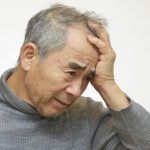How Opioid Detox Helps with Withdrawal
If you have an addiction to or a dependence on opiates, like heroin, morphine, or prescription painkillers, you know that you need help. You can try to quit on your own, but success rates are very low for people who take this approach. For a better chance at recovery, you should seek out structured, professional drug treatment.
But, what about detox, the process by which you transition from acutely addicted to a drug-free state? Do you need help with that? Although, there are types of drugs that allow for an independent detox, opiates can cause some serious withdrawal symptoms—including death. You do need professional opioid detox to make it through the withdrawal symptoms.
Finding a rehab facility or a detox program can feel difficult. Withdrawal.org can help. We will answer questions, discuss funding, and direct you to treatment options that meet your needs. Call 888-602-1971(Who Answers?) today.
Withdrawal
Before this discussion addresses how detox can help withdrawal, you need to understand the severity of opioid withdrawal. You might feel like you can make it through withdrawal without help, but seeing how scary many of the symptoms are can help you face your need for help.
The National Institute on Drug Abuse relates you will experience both early and late stage symptoms, which will set in within 12 hours of last heroin usage and 30 hours of last methadone usage. The more you use opioids, the more severe your withdrawal will be.
Early symptoms of withdrawal consist of:

Distress and anxiety are early symptoms of opioid withdrawal.
- Distress
- Anxiety
- Muscle discomfort
- Increased tearing
- Trouble sleeping: insomnia, nightmares, vivid dreaming
- Runny nose
- Perspiring
- Yawning
Late symptoms of withdrawal consist of:
- Stomach cramping
- Loose stools
- Dilated pupils
- Goose bumps
- Nausea and vomiting
Most opioid withdrawal will not prove to be deadly. However, anecdotal evidence supports the claim that methadone withdrawal can cause breathing and heart problems, as well as seizures.
Other dangers include aspirating vomit, breathing it into the lungs. It can cause lung infection. Additionally, the combination of diarrhea and vomiting can cause severe dehydration, which can cause electrolyte imbalance.
Dual Diagnoses Are Both Treated
In many cases of opioid addiction, patients suffer from multiple disorders. This is called a dual diagnosis or comorbidity. Data referenced by the National Institute of Drug Abuse shows people diagnosed with mood or anxiety disorders face twice the chances of suffering from a drug use disorder compared with people in general. The data shows the reverse as well: people with drug use disorders face twice the likelihood of suffering with a mental disorder.
Professional detox is staffed by addiction experts and they have the knowledge and background necessary to treat both of your conditions. Detoxing independently often fails to take into account the needs of both conditions and to address each of them to prevent treatment of one aggravating the other.
Medication-Assisted Treatment Reduces Withdrawal
Opioid withdrawal has a benefit not offered for many other drug withdrawals: medication specifically designed to treat it. There are many possible medications available:
- Methadone: relieves withdrawal and aids with detox
- Naltrexone: prevents relapse
- Buprenorphine: treats withdrawal and shortens detox
- Clonidine: reduces agitation, muscle aches, anxiety, runny nose, perspiring, and cramping; does not reduce cravings
These medications are only accessible through professional detox. When the perfect medication for your addiction is dispensed, you will feel normal, have no side effects, have controlled cravings, and not feel withdrawal.
Oversight Protects You
Many people detoxing from opioids develop serious depression and may begin to contemplate suicide. Or, agitation may escalate to violence. Some even develop psychosis: hallucinations and delusional thinking.
All of these conditions can create dangerous situations for those detoxing and those around them. Structured detox addresses these risks by providing oversight from a professional staff.
At the beginning of detox, you will undergo a thorough assessment that will be able to identify the risk of these behaviors and design a treatment plan that will put in place a series of protections to prevent you from engaging in risky behavior that could hurt you or someone close to you.
If you are ready to benefit from a qualified detox program, you need to get in touch with Withdrawal.org. Call 888-602-1971(Who Answers?) today, and speak to an expert.





